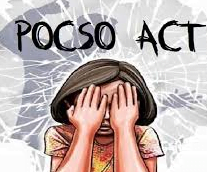Reporting Sexual Offences against Minors and the POCSO Act
The recent decision by the Himachal Pradesh High Court regarding the bailability of offences under the Protection of Children from Sexual Offences (POCSO) Act has raised legal questions.
Himachal Pradesh High Court’s Ruling
- Nature of the Offence: The court ruled that failure to report sexual crimes against minors, as mandated by Section 21 of the POCSO Act, is a bailable offence.
- Reference to CrPC: The court justified this by referring to the Code of Criminal Procedure (CrPC), stating that offences punishable with imprisonment of less than three years are bailable. Section 21 of the POCSO Act prescribes imprisonment of 6 months to a year.
Context of the Case
- Accusation against Hotel Manager: The case involved a hotel manager accused of not reporting an offence committed against a minor, as required by the POCSO Act.
- Main Accused: The primary offender had raped and recorded a video of a minor schoolgirl in a hotel, leading to charges under Sections 376 and 506 of the IPC and Sections 6 and 21 of the POCSO Act.
Mandatory Reporting under POCSO
- Sections 19 and 21: Section 19 of the POCSO Act mandates reporting by anyone having apprehension or knowledge of a potential or committed offence. Section 21 penalizes the failure to report, prescribing imprisonment or a fine.
- Exemptions: Children are exempt from liability for failing to report, and Section 22 of the Act protects children making false complaints.
Supreme Court’s Perspective
- Serious Crime: The Supreme Court has consistently ruled that the non-reporting of sexual crimes against minors is a serious crime.
- Obligations of Professionals: Certain professionals, such as medical practitioners and educators, have greater obligations to report cases of child sexual abuse.
Balancing Confidentiality and Reporting Obligations
- 2013 Ruling: The SC emphasized the seriousness of not reporting crimes against minors.
- Recent Attempt at Balance: In 2022, a three-judge bench sought to strike a balance between reporting under POCSO and confidentiality under the Medical Termination of Pregnancy (MTP) Act.
- Exemption for RMPs: The court allowed registered medical practitioners to be exempt from disclosing a minor’s identity when reporting under POCSO for medical termination of pregnancy under the MTP Act.
Month: Current Affairs - November, 2023
Category: Legal & Constitution Current Affairs





